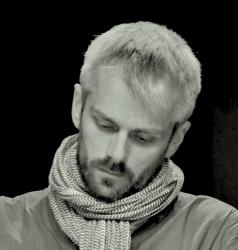

This Wednesday, the Coast Guard published the attached photographs, taken aboard its coastal patrol vessel Týr, during a search and rescue operation in the Mediterranean. According to RÚV, that day Týr’s crew took part in an operation saving 408 migrants, travelling on a cargo vessel, drifting some 165 nautical miles off Malta’s coast. According to the Lebanon-based news medium Al-Akhbar, the passengers were mainly Syrians, and had spent six days adrift on the boat.
The rescue operation took place only hours after the UN issued a statement describing the Mediterranean as the “deadliest route” taken by migrants. According to estimates, 207,000 migrants and refugees have attempted to cross the Mediterranean this year, of which over 3,419 are known to have drowned.
Also according to RÚV, last week, Týr’s crew took part in operations saving 390 migrants under similar conditions.
“Good for the soul”
Reportedly, no crew was on board the migrants’ ship when it was found. Týr’s crew took over its control and headed to shore. When the ship’s engine failed, Týr’s crew, co-operating with Italian police, decided to transport the passengers to a Spanish oceanographic vessel, Sarmiento de Gamboa, which eventually carried them to Italy.

Interviewed by RÚV, Týr’s Captain, Einar Heiðar Valsson said that the passengers had been in an “incredibly good” shape, given the circumstances. Quoted by Al-Akhbar, the Spanish vessel’s Captain, Maria Angeles Campos, said they “showed signs of dehydration” but were “otherwise in good health.” Einar Heiðar further commented that it is “hard to imagine the misery these people are fleeing from” and that yet on the other hand, it is extremely good for the soul to be able to come to the rescue and assist these people.”
Coast Guard and Frontex
![]()
The Icelandic Coast Guard has partaken in Frontex’ patrol operations on the Mediterranean since 2010. Frontex is the the agency responsible for patrolling the EU’s and the Schengen area’s external borders. Iceland is not a member country of the EU but it is a full member of the Schengen area. In a statement issued in 2011, the Coast Guard explained that it took part in operations in the Mediterranean to make up for post-2008 budget cuts.
According to Al-Akhbar, the Icelandic Coast Guard’s vessel’s current operations are a part of Triton, a coast patrol operation in the Mediterranean recently initiated by the EU to replace the Italian Navy’s “Mare Nostrum” search and rescue mission. Triton is an operation on a much smaller scale than Mare Nostrum, reportedly run on less than one third of the latter’s former budget. According to Frontex’ own press release this November, the operation has a total monthly budget of €2,9 million, to “coordinate the deployment of three open sea patrol vessels, two coastal patrol vessels, two coastal patrol boats, two aircraft, and one helicopter” in the Mediterranean.
At the launch of Triton, Frontex Executive Director Gil Arias Fernandez said: “I would like to underline that operation Triton focuses on border control and surveillance. Having said that saving lives will remain an absolute priority”. The Guardian has called Triton “a grotesque betrayal of the founding principles of the EU, an organisation built on the promise of peace, prosperity and asylum for the desperate” and “an indictment of timid politicians”.
The Deadliest Route
As of this writing, 3,419 people are known to have drowned on the way to Europe, over the Mediterranean, this year. Since the year 2000, 25 thousand people are known to have died on that journey. The latest reported incidents took place last Friday and Sunday. On Friday, twenty migrants traveling from Morocco fell overboard and drowned, south of Spain. On Sunday, seventy migrants from Ethiopia, traveling to Yemen, drowned as their boat sank off Yemen’s coast.
In the statement cited above, the UN refugee agency warned that “the international community was losing its focus on saving lives amid confusion among coastal nations and regional blocs over how to respond to the growing number of people making risky sea journeys in search of asylum or migration.” The UN High Commissioner for Refugees (UNHCR), Antonio Guterres, warned that many states seem increasingly preoccupied with securing their own borders rather than preventing the loss of life, saying “this is a mistake, and precisely the wrong reaction for an era in which record numbers of people are fleeing wars.” The criticism is not least directed at the EU’s Triton operation, “a vastly scaled-down effort that focuses on border protection rather than search and rescue” according to its critics and spokespeople alike.
Late September, Amnesty International published a report, highlighting “how the shameful inaction of European Union (EU) countries has contributed to a spiralling death toll”.

After the rescue, upon reaching shore
Various hardship may be expected to await the people once in Italy. A recent ruling at the European Court of Human Rights prevented Switzerland from returning asylum-seeking family to Italy, due to poor conditions of reception in Italy, where migrants and refugees may reportedly “be left without accommodation or accommodated in overcrowded facilities without any privacy, or even in insalubrious or violent conditions”.
The ruling is the latest in a series of condemnations of such conditions in Italy. In 2013 the EU condemned Italy for “its treatment of refugees after video footage emerged of naked asylum seekers being hosed down with disinfectant in freezing conditions on the island of Lampedusa”.
Buy subscriptions, t-shirts and more from our shop right here!















